Thomas Whyte Collection - Wallet 3 - Part 1 of 10
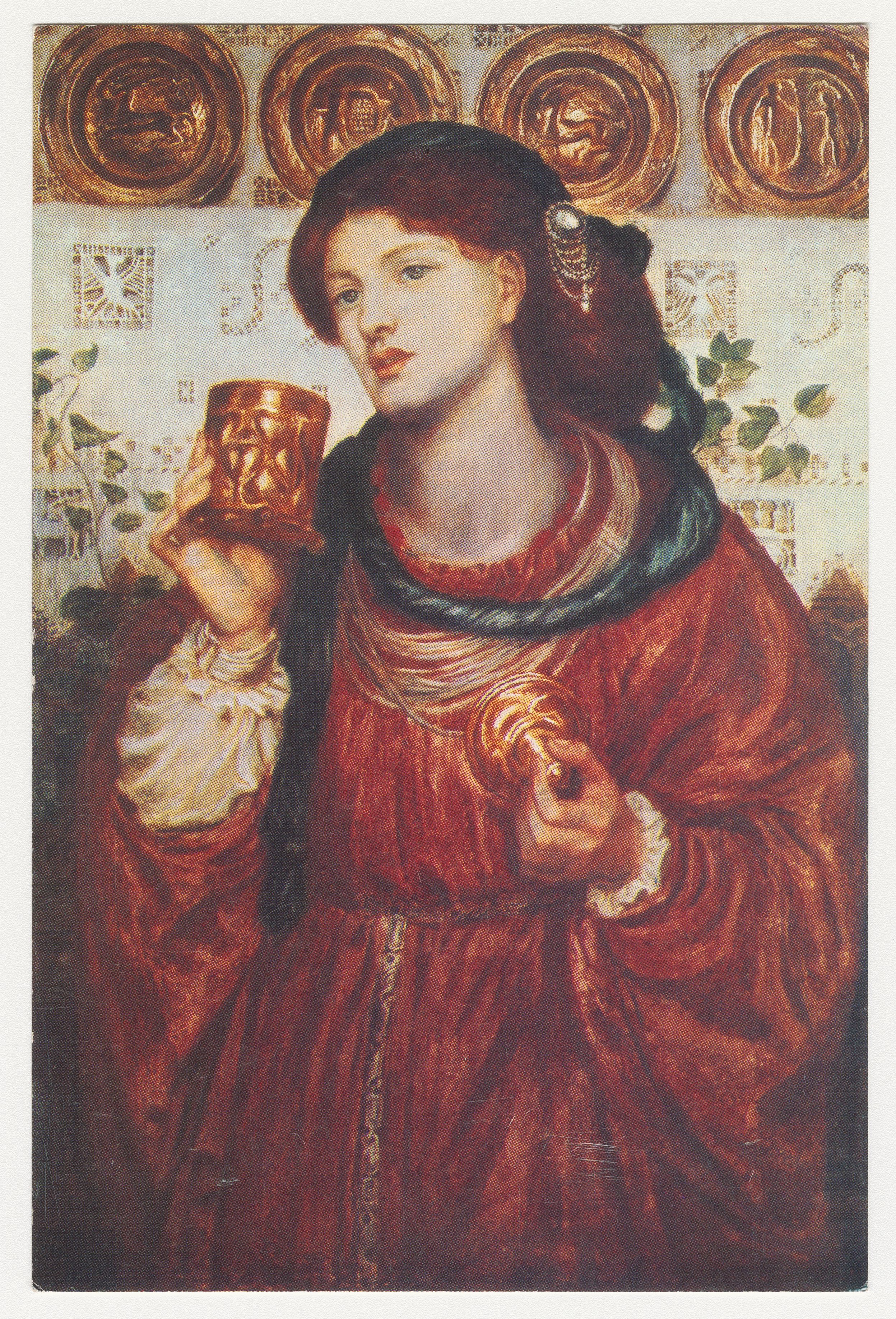
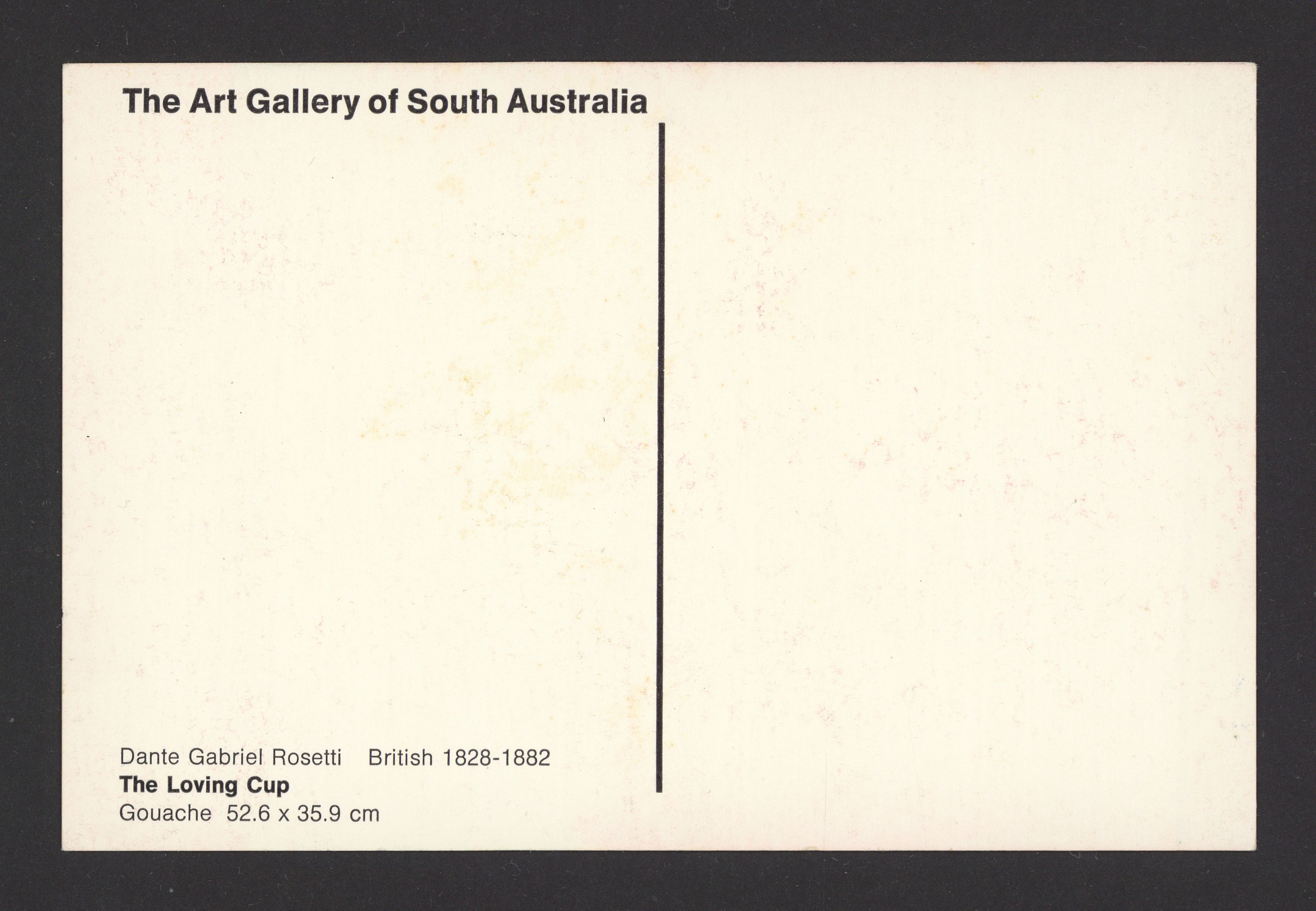
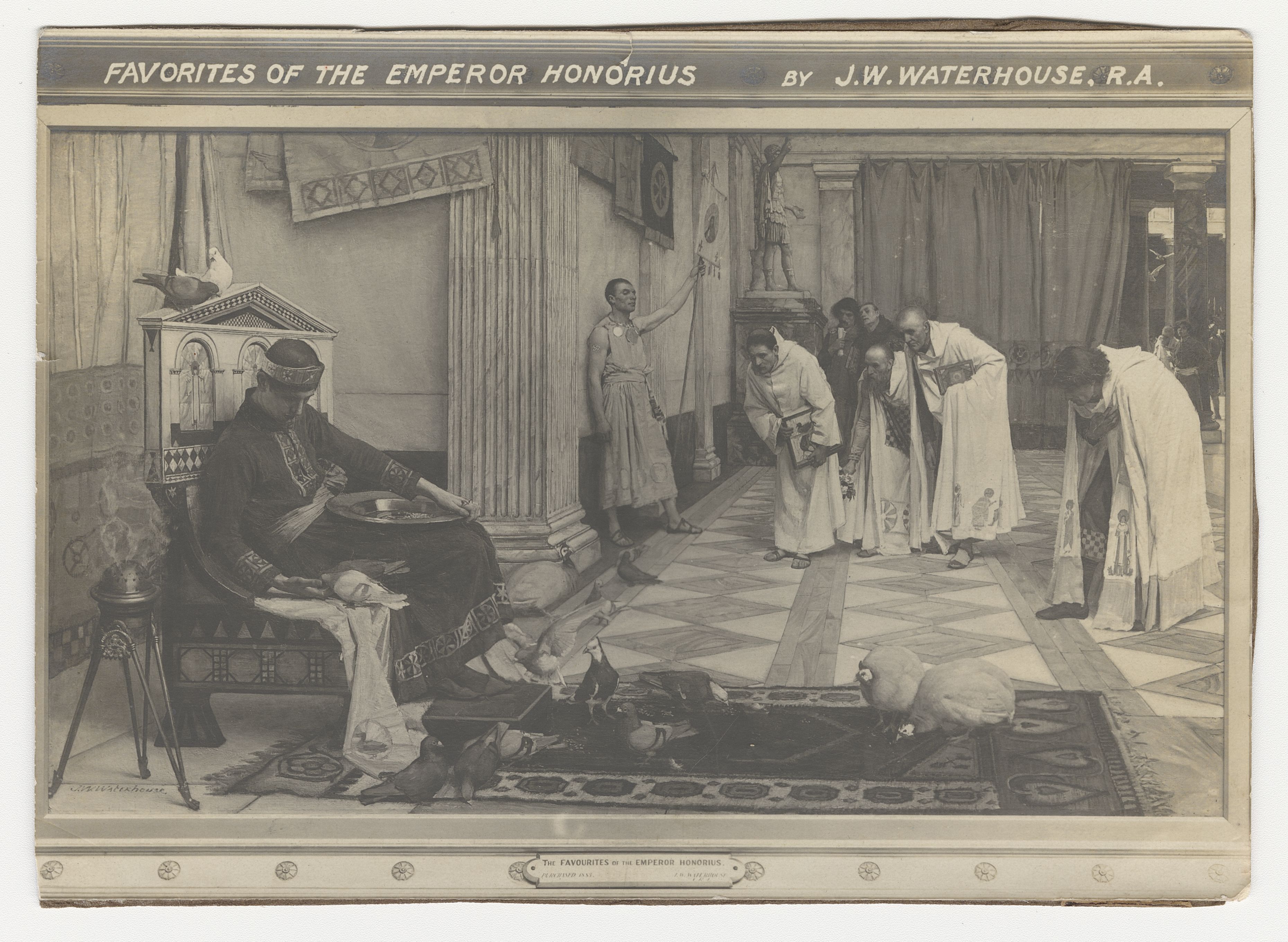
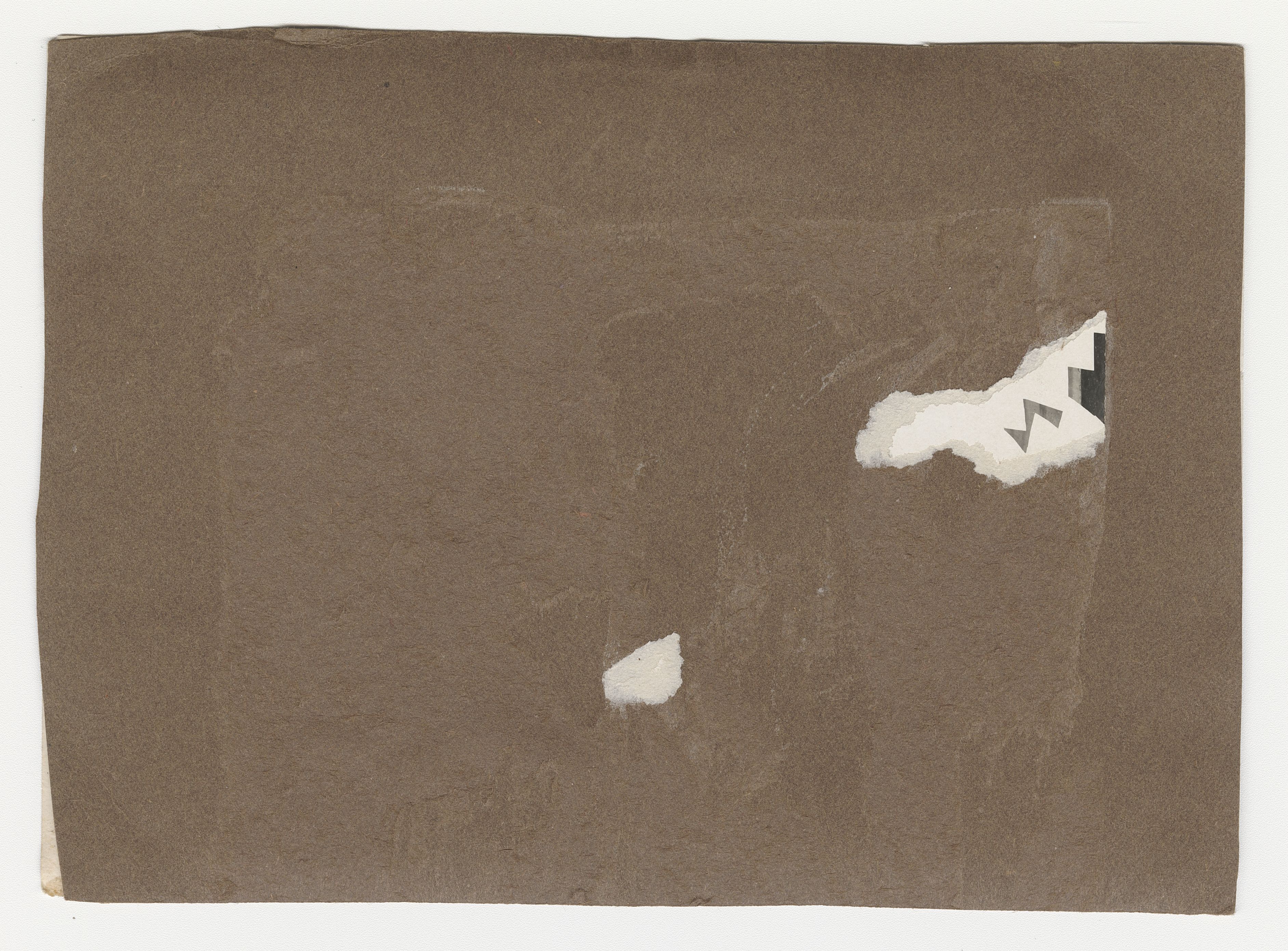
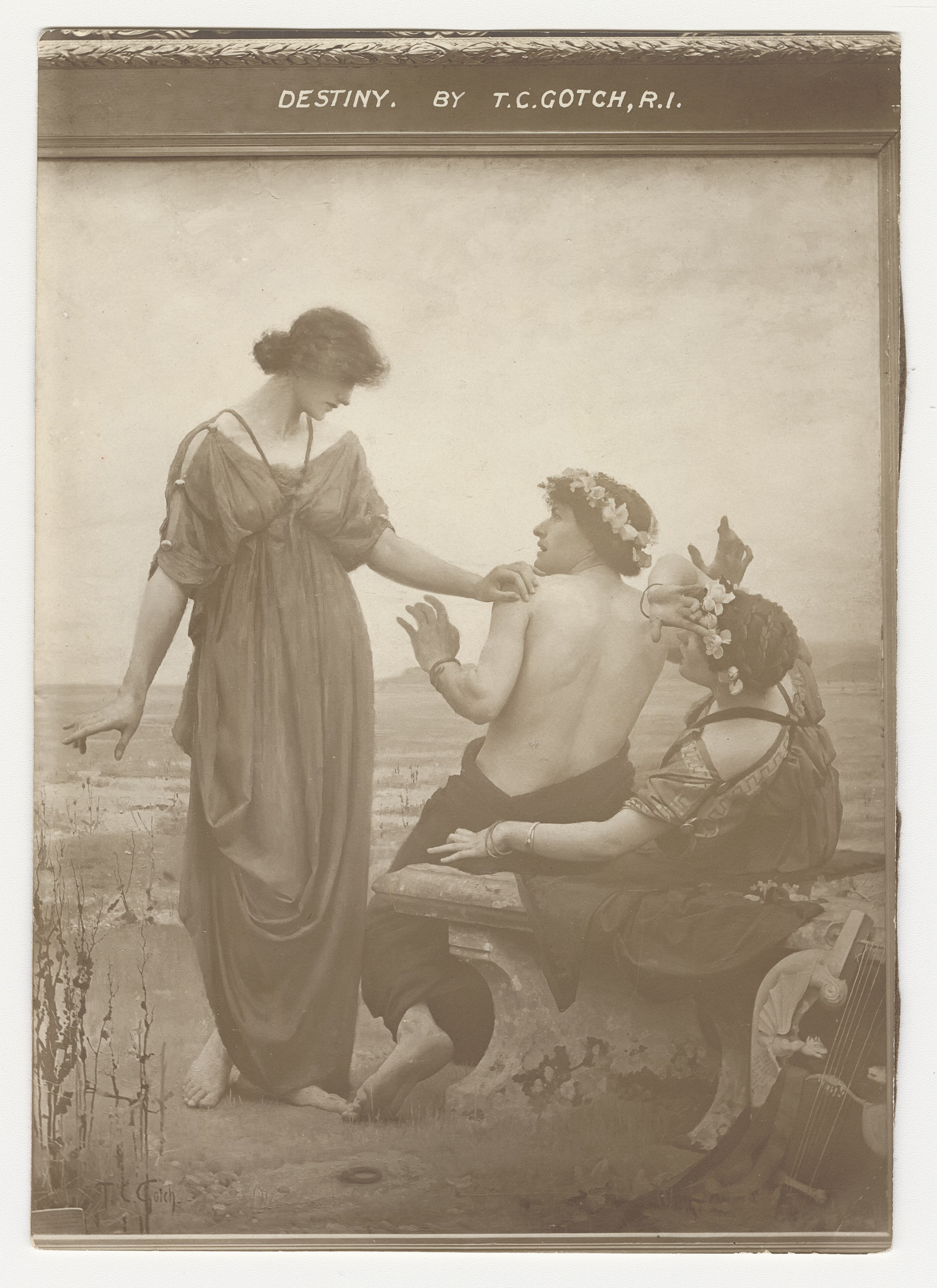
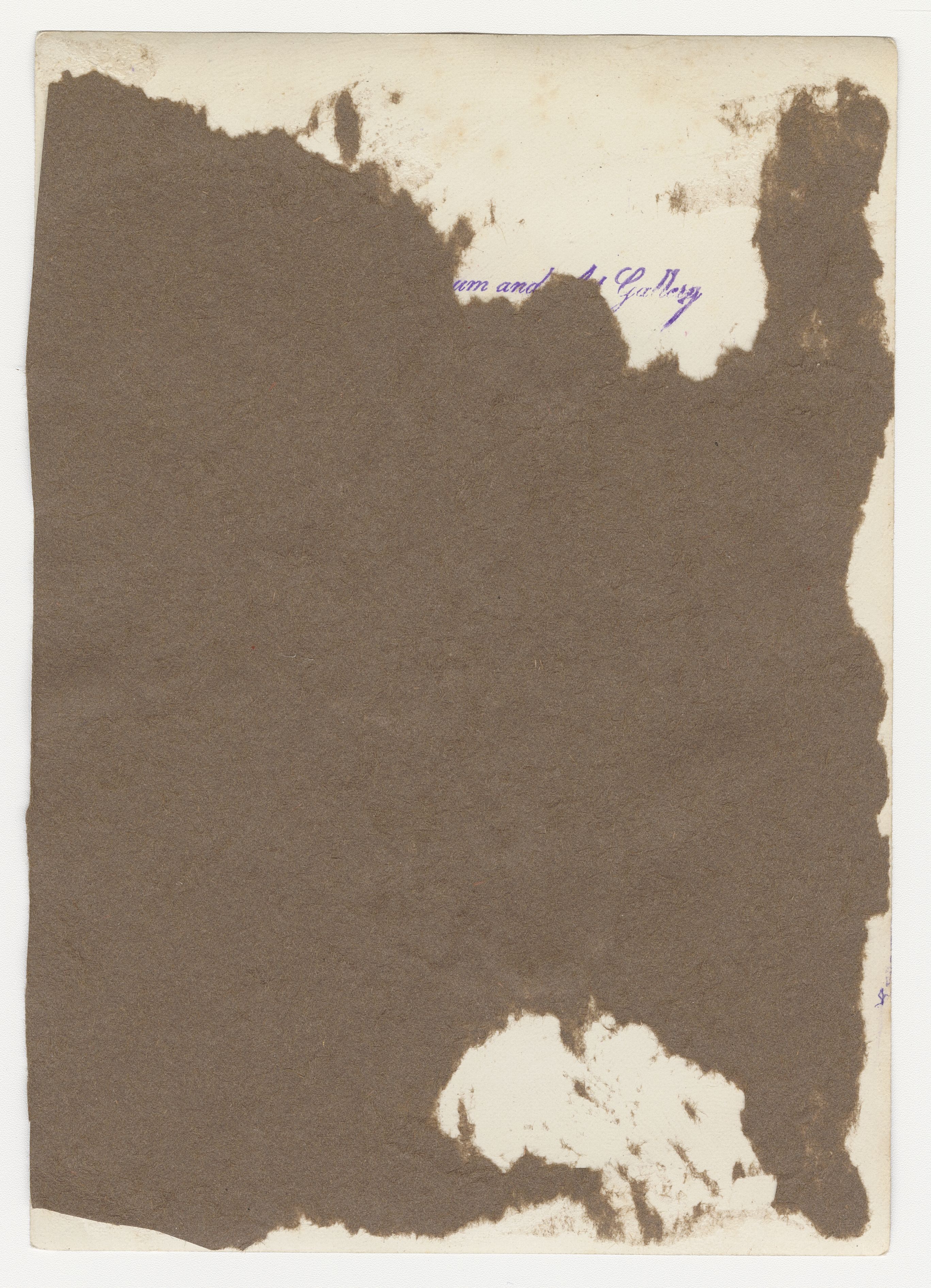




The Art Gallery of South Australia
Dante Gabriel Rosetti British 1828-1882
The Loving Cup
Gouache 52.6 x 35.9 cm
Favorites of the Emperor Honorius by J. W. Waterhouse. R.A.
THE FAVORITES OF THE EMPEROR HONORIUS
PURCHASED 1883 J.W. Waterhouse
E R I
DESTINY. BY T. C. GOTCH, R.I.
um and Gallery
[*torn page, difficult to decipher full text*]
(FRENCH OFFICIAL)
Paris, Tuesday
Operations to-day were favourable to
us on the whole front. There was an artil-
lery duel in Belgium. The British south
of Ypres are in possession of a certain
number of trenches where there was
sharp fighting for the past two days. Be-
tween the Oise and the Aisne, near
Bailly, our artillery effectively bombard-
ed convoys and gatherings of troops. We
progressed in the Rheims sector near
Loivre. We captured three kilometres of
trenches and several hundred prisoners
north-west of Perthes to the north of
Beau Sėjour in Champagne. There were
infantry actions in Argonne. Between
Four-de-Paris and Boureuilles fighting
continues favourably. We captured sev-
eral blockhouses in Bois-le-Pretre north-
west of Pont-á-Mousson. Reuter.
______
(FRENCH OFFICIAL.)
Paris, Wednesday evening.
Between the sea and the Oise our
artillery dispersed numerous bodies of
troops and destroyed convoys of cais-
sons. We carried two lines of trenches
north of Arras, repulsed violent
counter-attacks, took prisoners and
inflicted heavy loss. Many German
officers were killed. Progress made on
Tuesday in the Rheims sector near
Loivre was maintained and consolidated.
In Champagn we continued to gain
north-west of Perthes and captured the
enemy positions on a front of 800 yards.
All German counter-attacks north of
Mesnil-les-Hurlus and Beauséjour were
repulsed. In Argonne we advanced at
Bois Lagrurie and maintained our posi-
tion notwithstanding two violent coun-
ter-attacks and very hot bayonet encoun-
ters, which cost the enemy dear A
strong German attack at Four-de-Paris
was repulsed. Between Argonne and
the Meuse we advanced at various
points. In Alsace we seized the heights
dominating Sude 'le farm'. Our aero-
planes bombarded Freiburg in Breisgau.
Reuter.
_____
London, Thursday.
The British troops have recaptured
the trenches at Saint-Etoy they recently
lost. Mokattam.
______
Ottawa, Tuesday.
In the House of Commons Sir F.
Borden read a telegram from Mr. Har-
court announcing that the Canadian con-
tingent had landed safely in France.
27th and 28th divisions, composed
cipally of the batallions from India, inclu
ing Patricia's Canadians. He also com
mends highly the work of the Arm
Medical Staff and the splended sanit
tion and excellent services of the Roy
Eng neers. He concludes by saying th
there is no reason to modify in any mate
ial degree the views of his last despatc
of the general situation. He again grate
fully acknowledges the valuable help an
support of General Foch, Durbal an
Maudhuy of the French Army.
London, Tuesday.
Second Lieutenant Gore Brown
R.F.A and Lieutenant Gillespie, Gor
don Highlanders, captured in Januar
tried to scape from L lle fortress b
jumping fifty feet from the wall. Th
former broke his leg. Gillespie was m
hurt but stayed by his friend till bo
were recaptured. A German officer in
formed their families.
Reuter's Special Service.
London, Tuesday.
In the House of Commons, Mr Prim
rose said arrangements had been mad
to release civilian British and Germ
prisione s over fifty-five. Mr Primros
states that it has been settled to subm
the Wilhelminia's cargo to a prize cour
There was no question of proceeding
against the vessel itself.
Reuter's Special Service.
MENTIONED IN DESPATCHE
——
THREE THOUSAND NAMES.
London, Wednesday.
A Gazette was issued to-night
twenty-seven pages containing Fiel
Marshal Sir John French's recommen
ations for gallant and distinguished se
vice in the field. The list includes a
ranks and all arms, also naval transpo
and naval airmen, altogether abo
3,000 names. Reuter.
______
(Al-Ahram Special Service.)
Folkestone, Wednesday.
Ninety-four disabled German prisone
left to day for Holland to be exchange
against British d.sabled.
_____________
THE RUSSIAN OPERATIONS
_________________________________________
_________________________________________
THE FIGHTING IN BUKOVINA
______
(Al-Ahram Special Service.)
Novoselitz, Wednesday.
Austro-German troops, 120,00
strong, continue to attack fiercely th
Russian posit.ons before Czernowitz
The Germans suffered appalling loss
in crossing the river Sereth and in a
vancing down the val.ey of the rive
Pruth from Washkivitza, in fact the
lines were melt.ng like snow before t
Russian fire. The enemy has cut t
road from Czernowitz to Rumania b
the Russians and hurrying up reinforc
ments. Before this road was cut
the Germans hundreds of refuge s fl
into Rumania fearing Austrian ve
geance. The Russians are showi
great pluck and determination.
______
(RUSSIAN OFFICIAL.
Petrograd, Wednesday.
Fighting on the right bank of the V
tula continues in practically the same
gions and is very desperate in some s
ors. No change on the left bank of
Vistula. We repulsed an attack on
front of Khawa-Vykorotsch in Gali
inflicting heavy loss and we captu
1410 prisoners in repulsing an attack f
ther east. The Germans delivered
series of sustained impetuous attacks
ween Koziomoka and the Wysch
pass. All were repulsed with heavy lo
es. Almost a whole battalion w
bayonetted. The survivors were captur
In Bukovina there is no change.
Reute
______
(RUSSIAN OFFICIAL.)
Petrograd, Wednesday.
The Germans are advancing by G
jevo on Osowiec. On the Vistula th
have reached the Plock-Rancionz fro
All German attacks on the Bzura w
repulsed.
In the Carpathians we made prog
on the left bank of the San.
In Bukovina the Germans have o
pied lake Nadwornaia and passed
river Sceret. Havas
________
(RUSSIAN OFFICIAL.)
The Russians on the 15th obstina
THE
PROGRESS OF THE WAR
_______
THE DUM-DUM BULLET
______
(By Our Military Correspondent.)
There is a lot of mystery about the
"Dum-Dum" bullet. The Germans
are quite convinced they are being used
by the British and French armies, and the
latter are equally convinced that the Germans
are doing the same.
It may be laid down as a fact that na-
tional arsenals, in Germany, France or
Great Britain, do not make Dum-Dum
bullets. Many newspapers when speaking
of the modern bullet use the expression
"steel jacketed." There is no such
thing as a "steel-jacketed bullet." The
modern small-arms bullet consists of a
composition core of lead and tin surround-
ed by a jacket of cupronickel or cupro
zinc-alloy. If a steel jacket was used,
it would rip the interior of the rifle bar-
rel clean out. The metal used, cupro-
nickel or cuprozinc-alloy, is just soft
enough to conform to the rifled interior
of the gun. And yet it is sufficiently
ard to give cause, after a hundred or so
rounds have been fired, to barrel erosion
in conjunction with the effect of the
high-pressure, slow-burning explosive
used. The eroism increases in battle, as
the soldier has fewer opportunities of
cleaning his rifle out. It will be observ-
ed, therefore, that every jacketed rifle
bullet ever designed is potentially a
"dum-dum" bullet. Every such bullet
may become one of the dum-dum variety
for one of two causes either by reason
of natural forces working on it, or by the
design of the man who first despatched it.
Let us examine the first cause to begin
with.
KEYHOLING.
The modern jacketed bullet, whether
it is of the round-nose or pointed-nos
(British) type, swings beautifully true
through its trajectory up to a point which
is uncertain - that is to say, nobody knows
the exact point at which a bullet begins
to lose the stability imported by the
force which discharged it. After that it
begins what is called "keyhole." Ins-
tead of continuing the direct rotary mo-
ion imparted to it by the rifling, the
bullet begins to lose way and its base
begin to swing in a circle larger than its
own circumference. When it does this
the missile goes through the air with much
the same familiar movement as that of the
ordinary spinning top when it begins to
slow down after losing the full force of
the original rotary motion imparted by
the manipulation of the cord which start-
ed it. This exaggerated rotation of the
base is called keyholing. Keyholing
may be due to a variety of causes: it may
result from an imperfection in the bullet
itself, such as shape, balance, weight in
ratio to powder charge; from erosion
of the rifle barrel from atmospheric cond-
itions, from decreasing velocity, etc..
etc. There is no way to ascertain the
cause in every case, but we know that
bullets do keyhole. and the very fact of
this keyholing makes a bullet a splendid
instrument to stop, abruptly and perman-
ently, any living thing it hits.
AT THE MOMENT OF IMPACT
Further if a pointed bullet is
not actually keyholing from any
of the above causes, at the mo-
ment of impact, it is very likely to do
so the moment it meets with anything,
such as a buckle-belt or bone, which im-
pedes its easy penetration and continued
flight. Judging by wounds examined in
hospitals, there have even been instances
of bullets commencing to keyhole when
entering soft flesh; but, generally speak-
ing, such action only takes place after
he missile has lost much of its initial ve-
locity. The action occurs upon con-
tact because the point of the bullet is
checked (although only for an infini-
tesimal part of a second) before the
base is as with the point engaged
and checked, the base starts to
catch up with it. What happens
next, depends almost entirely up
on how fast the bullet was travelling
when it hit. If it still retains consider-
able energy, it will spiral its way
through the object struck in a fairly
clean manner. But if it is moving with
impaired velocity ( i.e. keyholing) it is
likely to imbed itself in the bone or
flesh and then, unable to penetrate
right through clearly, use its remaining
energy in pushing the bone or flesh
ahead of it. The sharper the point of
the bullet (and the British, German
and American army bullets are all sharp
pointed) the more likely it is to keyhole,
and create a terrible would which is
likely to bring forth the charge that
dum-dum missiles have been used.
That much of the talk of dum-dum
bullets is consequent upon keyholing
is the belief of many military experts.
There is, however, another side to
the case, the deliberate dum-duming of
bullets by soldiers themselves. A knife
or bayonet is used to cut off the point
of the jacket in such a manner that
when the bullet strikes, the lead and tin
core will pour through and spread out.
This is the dum-dum bullet, and, to be
perfectly frank, you cannot find any
army in the world---British, German,
French, Belgian, Austrian, Russian,
Japanese or Boer---that has no men
who have deliberately turned jacketed
bullets into dum-dums, by the simple
process just described. There is some-
thing to be said for the man who does
it. A soldier in the trenches sees an
enemy rushing at him, and know from
experience that a clean bullet hole will
not stop him. He is very apt, and per-
haps naturally, at such taime to attach
more importance to saving his own skin
than to obeying the behests of the
Hague or any other Convention. Dur-
ing the South African War, the am-
munition of our men was frequently in -
spectedby their officers to see that they
were not dum-duming the bullets, and
cases where they had done so were oc-
casionally found. In the official account
of the American War in the Phillipines
it is stated "The commanding officers
of every company examined every in-
dividual cartridge on every individual
soldier at morning inspection to see that
none had been tampered with." Com-
menting upon this, an American mili-
tary writer adds "A few hours later
you could see many an enlisted man pa-
tiently sandpapering his cartridges so
that the jacket point would be worn to
such thinness as would effect 'mush-
rooming' upon impact. "
In a recent article by the German
Professor Wilhelm Moll ndorf, it is
stated that he thinks the soldiers of the
countries at war with Germany are
ethically the equals of his countrymen,
and he adds "The enforcement in war
of international law or Hague cove-
nants depends, in the last resort, upon
the moral sense of each individual sol-
dier." We may admit that there is
quite a lot in this latter statement.
There are soldiers in every army who
manufacture dum-dum bullets, though
we may perhaps believe that, pro rata,
there are more in the German army
than in ours.
THE
PROGRESS OF THE WAR.
_____
STRATEGIC IMPORTANCE
OF RAILWAYS.
_______
(By our Military Correspondent.)
The recent operations in the eastern
European theatre of the war illustrate
very clearly the value of railways in re-
gard to military concentration. The Rus-
sians had extended their right flank in
Eastern Prussia very near to the Baltic
at Tilsit, and had assumed a strategic
offensive which has successfully placed
them in occupation of the Prussian towns
of Lyck, Johannesburg, Goldapp, Eyd-
thuhen, and had carried them up to the
vicinity of Insterburg, Angerburg, Ras-
tenburg and Sensburg. For the second
time since the war started the Germans
found the situation in Eastern Prussia
growing acute. Public opinion demand-
ed that the Russian advance should not
only be stopped, but that the pet pro-
vince of Prussian junkerdom should be
cleared of the enemy. It may be said at
once that the Germans have succeeded
in doing this, and the telegrams have told
us very plainly what has occurred. The
Germans, utilising their admirable rail-
way system, suddenly reinforced their
line in Eastern Prussia by additional
troops which are variously estimated as
being from twelve divisions, which
would be an army corps and a half, or
about 60,000 men, to four army corps or
about 160,000 men. An immediate and
vigorous offensive was started against
what would be about the centre of the
Russian right flank around Johannes-
burg and Lyck. It is improbably that the
Russians were taken by surprise. They
seem to have been quite clear, at an early
period, as to the German concentration,
though they may not have known exact-
ly the number of additional forces being
brought up.
Their lack of railways, however, prevented
them in turn, bringing up rein-
forcements in sufficient time to meet the
situation effectively. In Eastern Prussia
there is a perfect network of railways
giving direct communication, without
break of gauge, between the interior of
Germany and the whole German frontier,
with Osterode, Allenstein, Sensburg,
Rastenburg, Angerburg, Lyck, Inster-
burg, Gumbinnen and right along the
frontier to Tilsit. The Russians, on their
side, have nothing like this. The frontier
is only crossed, with break of gauge, in
three places. In the extreme north a line
runs from Kovno, through Wirballen, to
Eydtkuhnen; lower down, the line from
Grodno to Suwalki, crosses the frontier
and goes to Goldapp and Angerburg,
while in the south-eastern corner of East-
ern Prussia a line from Bialvstok runs
through Osowiec, with a branch to Au-
gustowo,G rajevo, and across the frontier
to Lyck and Lotzen. There is no railway
system running parallel to the frontier,
as the Germans have for almost the whole
length of it on their side.
Having collected their men far more
rapidly than the Russians could collect
any men to meet them, the Germans
launched their effort. It is quite clear
what this effort was. Ignoring altogether,
at any rate only containing the ex-
treme right flank of the Russians, they
hurled a great mass of men, supported by
heavy artillery, against the centre of the
lank around Lyck. The movement was
successful in its object, but, in common
with all massed attacks in present day
warfare, was unquestionably attended
with enormous slaughter on the side of
e aggressor. One telegram spoke of
7,000 German dead in one encounter.
What happened after is clear from a
perusal of the map, though without such
id, the telegrams appear contradictory.
One telegram speaks of a great battle in
which the German advance was finally
repulsed at Augustowo, twenty miles
within Russian territory. Another asserts
hat the Germans have not crossed the
frontier into Russia. The telegrams refer
to two different places. The German of-
fensive undoubtedly pierced the centre of
the Russian right flank around Lyck and
carried everything before it up to Au-
gustowo, an advance of some thirty
miles. At Augustowo and at Osowiec it
was checked, for the very simple reason
that here the retiring Russians came on
to their own railway system again and
would have undoubtedly have found heavy re-
inforcements waiting for them. The line
from Augustowo to Osowiec is about
twenty-five miles and seems to represent
very accurately the line of the German
front or edge along and behind which
men were packed and were pressed for-
ward regardless of loss of life. The
actual effort having been perforce end-
ed, we may take it that, provided the
ground is not frozen too hard, the Ger-
mans have dug themselves in.
So much for the centre. Now the very
fact of this centre having been thrown
back, would necessitate the extremity of
the right flank, that portion lying through
Goldapp. Gumbinnen, Eydtkuhnen up
to Tilsit, retiring to save itself from en-
velopment It has retired as we know,
but it is to this portion of the area the
telegram relates which states that the
Germans have not crossed the Russian
frontier and that the Russians are still in
Eastern Prussian. The retirement in this
area was probably undertaken leisurely
and while the distance receded was suf-
ficient to preclude the possibility of en-
velopment, it stopped also the German
advance which had been following it up,
and the Russians have by now probably
dug themselves in. The fact that in the
centre the German advance made for
Augustowo and Osowiec is significant,
as it shows an attempt to obtain posses-
sion of the Russian railways at these
important points. It displays, once again
the strategic value of railways in modern
warfare, and how thoroughly this is ap-
preciated by the German General Staff,
To summarise; the Germans have un-
questionably gained a success, if success
is to be judged by an advance for a short
distance at an appalling loss of life and
at the expenditure of an enormous quan-
tity of numitions of war. As to how far
the Germans can stand such repeated
strains, and the strains is going on over
the whole fighting area, only the future
can show.
The
____
RISING PRICES
IN EGYPT.
_____
THE CASE OF FLOUR
AND COAL.
_____
(From a Correspondent.)
The decision of the Government to al-
low the exportation of flour has surprised
the majority of the population. Lately
the price of flour has been increased at
such a rate that great uneasiness is felt
among the natives.
The sack of flour which a few weeks
ago was worth a hundred and eight
piastres, is not sold now under two
hundred and twenty five. It is not the
well-to-do people that have to suffer but
the poor who have been sorely tried late-
ly through lack of employment. The
bakers being obliged to follow the price
quoted in the price list have reduced the
size of the loaves.
Another question which raised much
discussion yesterday morning at Alex-
andria is the decision to the Customs
Administration to increase the tariff for
coal. A meeting was held on Monday
morning at the Customs Administration
and the Customs' authorities and the
coal merchants agreed to raise the price
of coal still further. It must be remem-
bered that a few years ago the Govern-
ment, in order to help the cultivators and
to encourage them to buy portable en-
gines and agricultural impliments re-
duced the Customs' dues from 8 1/2
per cent to 4 1/2. This measure was
very much appreciated by all those inter-
ested in the welfare of the agriculturists.
Great uneasiness has been shown lately
by the Government at the large increase
in the price of coal which has taken place
in England, and the consumers think that
it is more proper to reduce the Customs'
dues rather than increase them. If the
Customs Administration is a branch of
the Egyptian Government why do not the
responsible authorities in this department
follow the views of the latter; which [[is]]
the welfare of the people?
Nowadays it is a well-known fact that
the agriculturists, owning to the introduc-
tion of machinery to help them in their
work, are the greatest consumers of the
coal imported into this country. The
actual price is high enough to tax their
already sorely pressed resources. The con-
sumer has to pay 62 shillings per ton for
Newcastle coal and 66 shillings per ton
for Cardiff coal. The goods are delivered
free on truck and the railways charge
have to be paid by the buyer. At the
actual rate of valuation, the importer will
have to pay to the Customs 2 shillings
and 9 pence per on, which he will charg
to the consumer. Coal merchants who
a short time ago were able to convinc
the Government of the necessity of tak
ing coal out of the price list will now re
fuse to sell coal at the present rate.
Let us hope that the authorities will
do their utmost and that the prices fixed
by the Customs yesterday morning will
be decreased. This measure will be a[[?]]
much appreciated by all those interested
in the question as the reduction in the
Customs' dues ten years ago.
_______________
FOR PRESBYTERIAN SOLDIERS
There will be a short service in St.
Andrew's Church, Cairo, at 4 p.m. on
Saturday the 27th instant, to be followed
by a Social meeting in the Continental
Hotel at 5 p.m. The meetings on Satur-
day (27th) are for men in Mena Camp;
and there will be similar meetings for
those at Zeitun on the following Satur-
day. Tickets for the 27th (limited to 300)
may be obtained from the Presbyterian
Chaplain at Mena.
_______________
PRINTANIA THEATRE.
On Saturday, February 27 next, at
4 p.m. precisely, the fourth grand sym-
phonic concert under the patronage of
Comm. Attilio Serra, the Italian Agent,
will take place and will be composed of
65 performers under the direction of
Maestro Gaston Hirsch.
PROGRAMME
Elgar, Pomp and Circumstance.
March; A. Dvorak, The New World.
Symphony, adagic, allegro molto, largo.
scherzo, allegro con fuoco; B. Haik: (a).
The Poor Fisherman; (b) St. Genev-
ieva keeping watch over Paris asleep, 2
essays after the picture by Pavis de
Chavannes; Steam boat after T. Corbore;
Tschaikowsky: 1st part of the major con-
certo for violin and orchestra; allegro
moderato; Mr. Isaia viol n; T. Sinigag-
lia; Two Dances on Piemontese Popular
Airs.
Prices of admission will be as fol-
lows:—
Side boxes (in pit-tier) P.T. 80; boxes,
1sr row P.T. 60; boxes, 2nd row
P.T. 40; front stalls P.T. 15; stalls
P.T. 10; box stalls P.T. 10; amphi-
theatre P.T.4. Tickets are on sale
daily at the door of the theatre. The
doors are closed during the performance
of the items.
_____________________________________________________________
Port-Said Eastern Exchange Hotel.
FIRST CLASS
ENGLISH HOTEL
Telegrams "COMFORT Port Said
 Jacqueline Kennedy
Jacqueline KennedyThis transcription item is now locked to you for editing. To release the lock either Save your changes or Cancel.
This lock will be automatically released after 60 minutes of inactivity.